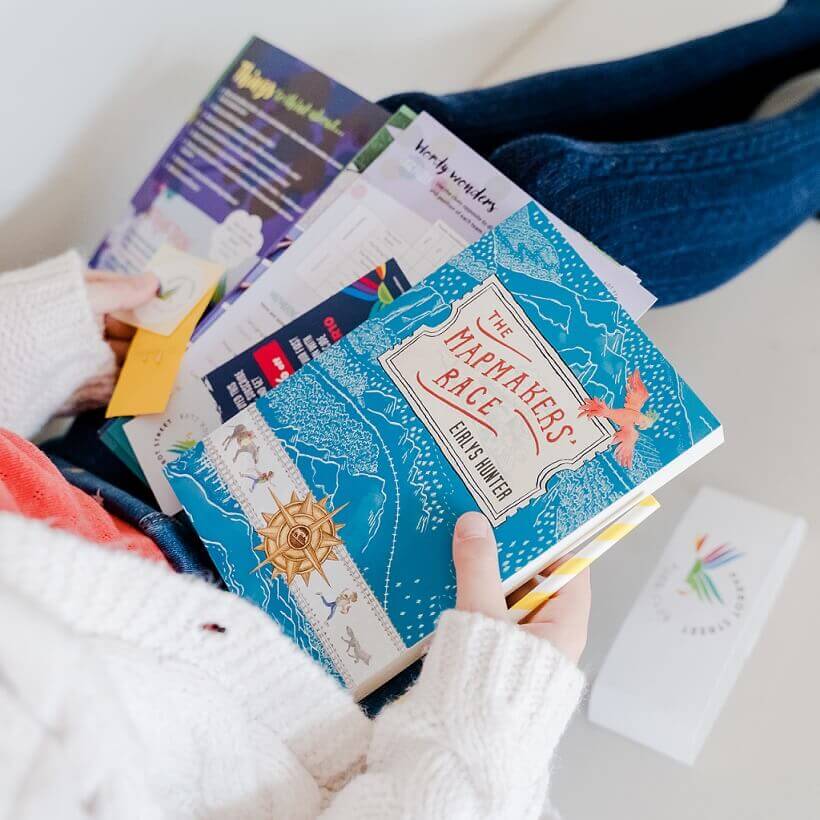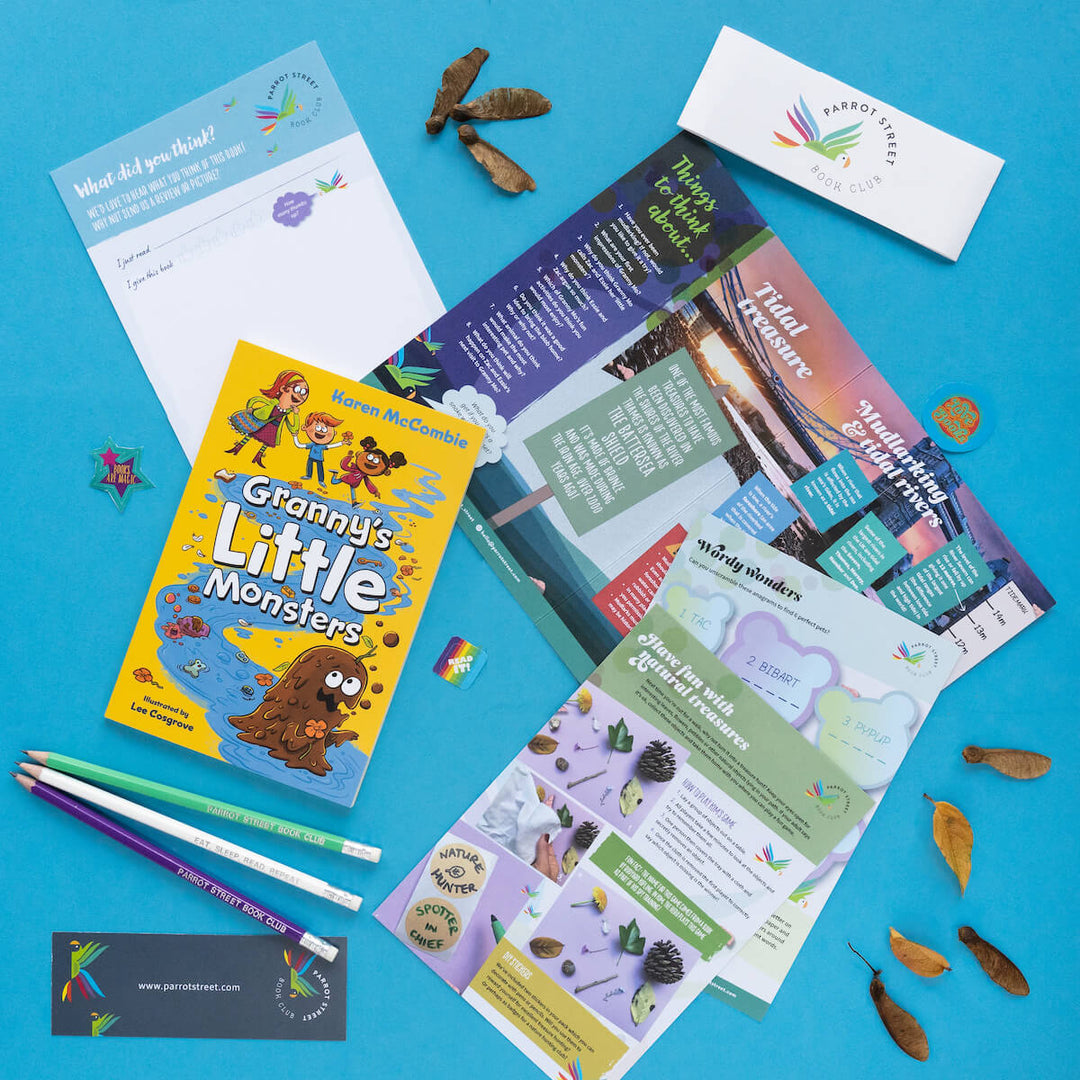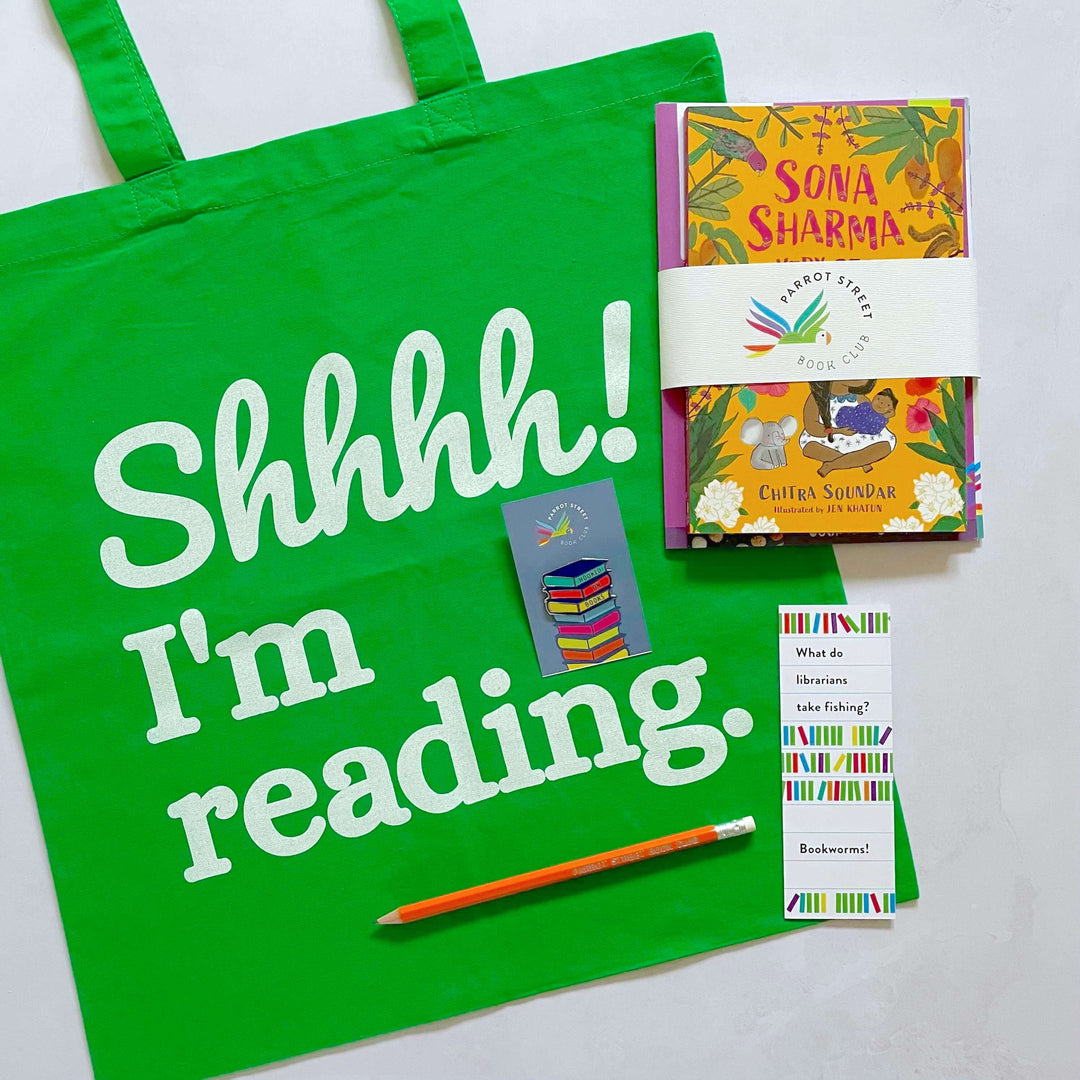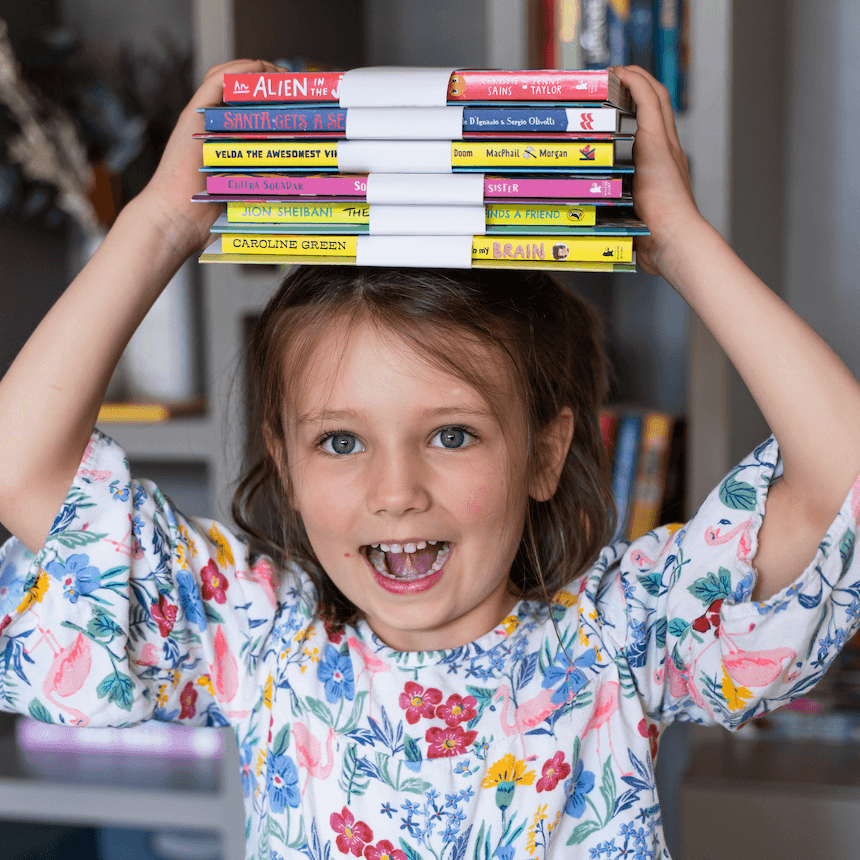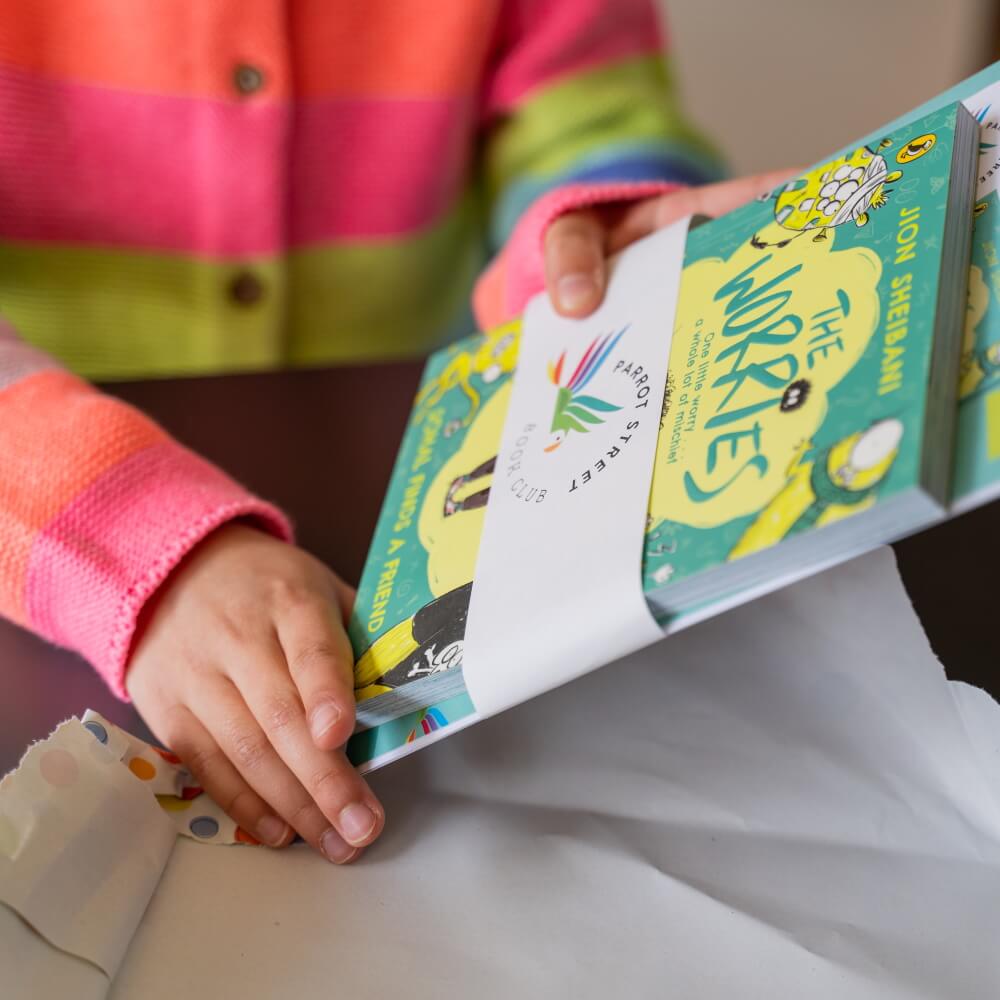David Wolstencroft on The Magic Hour and fantasy books for kids

The book we've shared with our Cockatoo subscribers this month is a mind-bending magical STEM-inspired adventure, with a fearless and relatable lead character, an inspiring grandmother with an important story, and some gripping cliff hangers! Set in between Edinburgh and a thrilling fantasy world, The Magic Hour is thought-provoking and perfect summer reading. We asked author David Wolstencroft to tell us more about what inspired the book and which fantasy books for kids he recommends you turn to next.
What inspired you to write The Magic Hour?
I have always been obsessed with time and had wanted to write a “thriller for kids of all ages” for many years. I have always admired children’s fiction because I think it is one of the hardest things to do — which is probably why I never did it before. Then, a few years ago, there was an inflection point — when she was still in primary school, my daughter and I walked past her old nursery school playground and she instantly became very nostalgic. That got me thinking about how children experience time, and how very often time — and the hours of the day — aren’t really theirs, since the time of their young lives are often governed by the demands of school and home. Then lockdowns came and stole time from everyone, but I felt particularly emotional about the stolen childhoods I could see around the world. So I suppose that is what pushed me to start writing.
Are any of the characters and their experiences based on real people or events?
Not really. My late father was an astrobiologist, which is what first got me excited about physics and the scientific method, and I have happy memories of the Royal Observatory on Blackford Hill. But while there are familiar landmarks in the book, I would say only the city of Edinburgh itself is based on any kind of reality — it’s where I grew up, and I have always wanted to set a story here, because it is this extraordinary layer cake of the past and the present intermingled in the most beautiful way. Ailsa and her family just sort of appeared, as did the other characters in the book, and none of them are based on real people. There is one character from Scottish folklore, however… the Brollachan. I just hope he’s not real.
What would you do with an extra hour each day?
This morning, I could definitely do with another hour in bed — but I think that’s the lazy answer! My thoughtful response here would be to spend more time preparing and eating a meal with my family. I love to cook and love to eat together, and I think that sort of time is just golden.
What message do you hope young readers will take away from the book?
I don’t tend to start a story with a message, but my experience in writing usually means I realize there’s one when I reach the end. I would love young readers to think about time as a resource, as the most valuable thing in our world — since it permits us to give our energy to all the other extremely valuable things in life. With more time, we have more chances to change the future for the better… and when you’re young, that’s an important piece of context. When you’re young, you have all this time ahead of you, and hopefully, when they've finished The Magic Hour, a young reader might value that time just a little more than they did.
Can you tell us anything about what the future holds for Ailsa?
I can indeed. The Magic Hour series continues! In Book 2, which I’m calling The Infinite Minute, it’s a whole new adventure for Ailsa, with a different slant on time and how it can go wrong. Not least because part of the world of The Middlemarket has found its way into contemporary, real-world Edinburgh, and only Ailsa is able to save the day. I’m in the middle of writing it now and if you read the first one, you’ll know that there are several loose ends that need to be pulled…
Why did you choose to write books for this age group?
I absolutely love “middle grade”, as its known, because it is full of imagination and possibility. There are so many wonderfully talented authors writing books for ages 8 to 12 — but I find that all fiction is appealing to everyone, and I generally refer the age range as 8-108. I read "grown-up” books as a kid and now I read & write “children’s” books as an adult. I think it’s also true that these were the kinds of books that first excited me and sparked my imagination as a child. I will never forget reading Susan Cooper’s The Dark Is Rising at 9, I still remember where I was sitting, transfixed, not wanting it to end.
Do you have a favourite place to write?
I am lucky enough to have an extra bedroom which my wife and I use as an office, but today I’m at my kitchen table. I tend to go wherever is closest to my coffee cup.
Which other fantasy books for kids would you recommend our subscribers read next?
I’m a huge fan of Vashti Hardy, whose Brightstorm books are tons of fun - Book 4 of the series is called Serpent of the Sands and it’s terrific!
Copies of our The Magic Hour pack, including a copy of the book and loads of fun activities to go with it, are now available for individual purchase. Grab a copy while stocks last!
This post includes affiliate links to our bookshop.org page, meaning we receive a small percentage of the sale should you purchase through them. Additionally, a percentage from all sales on the platform goes directly to local UK bookshops which is an initiative we're delighted to support!
JOIN OUR EMAIL LIST
Children's book news straight to your inbox
We love sharing product updates, book recommendations, children's activity ideas and special offers via email.





